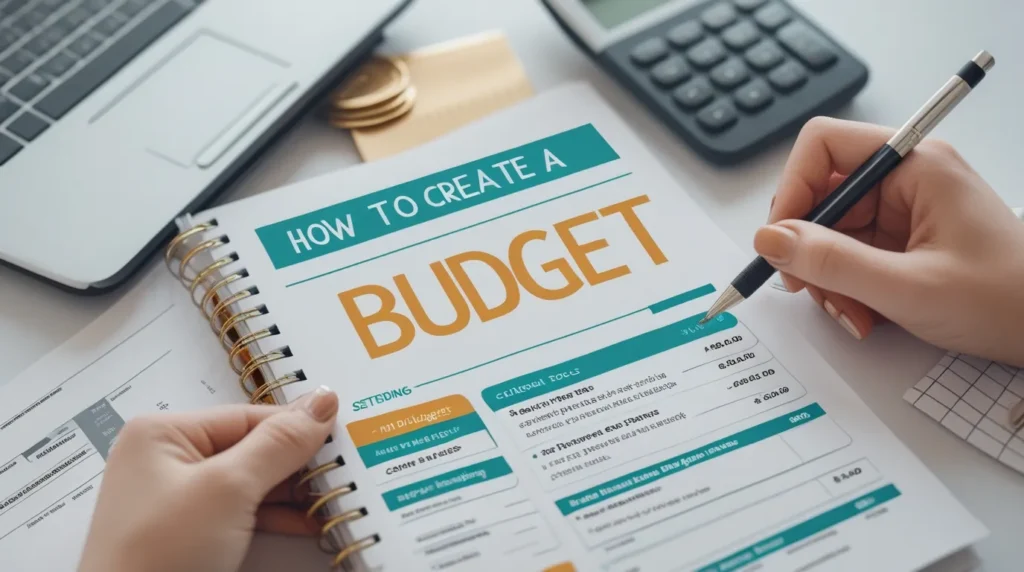Create a Budget That Works for You
A budget is more than just a financial plan; it is a roadmap to achieving your financial goals and maintaining stability. A well-crafted budget allows you to control your Create a Budget That Works for You expenses, save for the future, and ensure that you live within your means. However, many people struggle with budgeting because they either create unrealistic plans or fail to stick to them. In this guide, we will walk you through the steps to create a budget that truly works for you.
Why Is Budgeting Important?
Budgeting is crucial because it helps you:
- Track your income and expenses
- Avoid unnecessary debt
- Save for emergencies and long-term goals
- Reduce financial stress
- Improve financial discipline and decision-making
By implementing an effective budget, you gain control over your financial situation and can work toward financial independence.
Steps to Create an Effective Budget
1. Assess Your Income
The first step in budgeting is knowing how much money you have coming in. Create a Budget That Works for You Calculate your total income, including salary, freelance work, rental income, and any other sources. If your income fluctuates, take an average based on the past few months to get a reliable estimate.
2. Track Your Expenses
Before you set spending limits, analyze your current spending habits. Categorize your expenses into Create a Budget That Works for You:
- Fixed Expenses: Rent, mortgage, insurance, loan payments, and utility bills
- Variable Expenses: Groceries, transportation, entertainment, and shopping
- Savings & Investments: Emergency fund, retirement contributions, stocks, and mutual funds
Tracking your expenses for a few months will help you identify patterns and areas where you can cut back.
3. Set Financial Goals
Define short-term and long-term financial goals. Examples include:
- Short-term goals: Paying off credit card debt, saving for a vacation, or buying a new gadget
- Long-term goals: Buying a house, saving for retirement, or funding a child’s education
Your budget should align with these goals to ensure steady financial progress.
4. Categorize and Allocate Funds
Use the 50/30/20 Rule as a guideline for budgeting:
- 50% on Needs (rent, food, utilities, insurance, debt payments)
- 30% on Wants (entertainment, dining out, shopping, travel)
- 20% on Savings & Debt Repayment (emergency fund, retirement, extra loan payments)
Adjust these percentages based on your unique financial situation and priorities.
5. Cut Unnecessary Expenses
Identify areas where you can reduce spending. Common strategies include:
- Cooking at home instead of dining out
- Canceling unused subscriptions
- Using public transport instead of owning multiple vehicles
- Shopping smartly and avoiding impulse purchases
Even small adjustments can add up to significant savings over time. Create a Budget That Works for You
6. Automate Your Savings and Payments
Set up automatic transfers to savings accounts and automate bill payments to avoid late fees. This ensures you stay disciplined with saving and prevents unnecessary Create a Budget That Works for You financial stress.
7. Monitor and Adjust Regularly
A budget is not a one-time exercise; it requires regular monitoring. Review your budget monthly or quarterly to assess your progress. If your financial situation changes (e.g., income increase, unexpected expenses), adjust your budget Create a Budget That Works for You accordingly.
8. Use Budgeting Tools and Apps
There are many budgeting tools available that can simplify tracking and Create a Budget That Works for You management, such as:
- Mint (tracks expenses and categorizes spending)
- YNAB (You Need a Budget) (focuses on proactive money management)
- PocketGuard (prevents overspending by showing available cash after Create a Budget That Works for You expenses)
- Excel/Google Sheets (manual but customizable option)
Choose a method that works best for your lifestyle and financial goals.
Common Budgeting Mistakes to Avoid
- Setting Unrealistic Goals: Avoid cutting expenses too aggressively; allow for flexibility.
- Ignoring Small Expenses: Minor expenses can add up and derail your budget.
- Not Accounting for Irregular Expenses: Plan for annual expenses like insurance renewals, taxes, and holiday spending.
- Failing to Review and Adjust: Your budget should be dynamic and evolve with your financial situation.
Final Thoughts
Creating a budget that works for you is about understanding your income, controlling expenses, and aligning your spending with your goals. It’s not about restrictions but about making informed financial choices. With consistency and discipline, a well-Create a Budget That Works for You structured budget can pave the way for financial success and security. Start today, and take charge of your financial future!

